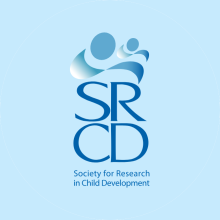July 2011 Spotlight on the SRCD Policy Fellow: Charlayne Hayling, Ph.D.
2010-2011 Federal Congressional Policy Fellow
“May you live in interesting times…” is often identified as an old Chinese curse. Some would say that we must be living in such times considering the state of public education, the assassination attempt on a congresswoman, two wars, a budget crisis, a Congress divided, and so much more. I must say that though my time on the Hill has certainly been in interesting times, it has ignited an even stronger fire in me to advocate for the needs of American disadvantaged children and families in these “interesting” times. Where else can a trained counseling psychologist committed to positively changing the lives of youth, have a bird’s eye view of the national challenges facing our children and discuss potential solutions with lawmakers, Geoffrey Campbell, Melinda Gates, Secretary Duncan, local, state, and community leaders, teachers, parents, advocates, and youth -- all in one year? I have spent my fellowship year in the office of Senator Jeff Bingaman (D-NM). It has been a sincere pleasure to learn the intricacies of federal education and child welfare policy in the office of such a senior member of the Senate at this particular time.
I applied for the SRCD Congressional Science Fellowship because I realized how little I knew about the specific elements of policymaking. It is rare to find child development scholars on the Hill in any capacity. Therefore, many critical decisions related to children and youth are influenced by staffers with unrelated backgrounds. I have viewed this experience as an awesome opportunity to both learn and share some of the knowledge I have as a scientist-practitioner. My previous work has largely been focused on the contextual factors that influence the outcomes of at-risk youth, and much of my research has been school-based. To that end, I was thrilled to land in the Senate this year to begin working to reauthorize the Elementary and Secondary Education Act (also known as No Child Left Behind).
It has been a privilege to contribute to legislation related to neglected and delinquent youth, safe and healthy students, foster youth, parental involvement, English learners, Tribal youth, and Promise Neighborhoods among others as a staffer of a member of the Health, Education, Labor and Pensions Committee (HELP). I have worked to highlight the Senator’s priorities on school-based health, and high school dropout reduction through the lens of child development with an emphasis on social emotional learning, wraparound services, parent engagement, health education, and community partnerships in this context. As a scientist, integrating research and practical knowledge into the policymaking discussions is not always easy, but it is always necessary. Nevertheless, the world of policy development is completely different from science and I literally learn a number of “new things” everyday.
An amazing element of working in a Member’s office is the connection that is built between staff and the constituents. I was fortunate to travel to the state of New Mexico twice this year during which time I met with state leaders, students, teachers, and parents, and even led some workshops on education policy. While my previous work centered on the needs of urban youth, this experience afforded me the opportunity to gain a rich understanding of the pervasive needs of rural and American Indian youth and families. I have also briefed the Senator on a number of relevant topics, staffed him in Member-level discussions and hearings, and most of all I have been a part of history. Our nation is at a critical juncture wherein individuals are questioning the fundamental principles of our country. The most important question to my work this year has surrounded the necessity of a federal role in education – what many would call the foremost piece of current civil rights law. As I reflect on my time on the Senate floor this week, I can no longer say that I am unfamiliar with the federal lawmaking process. I am now faced with the responsibility to use this knowledge and the relationships I have developed to affect change for the remainder of my career.
I am grateful to SRCD for this amazing once-in-a-lifetime experience. I plan to show my appreciation by continuing to work to bridge the gap between science and policy, by conducting more policy relevant research to share with legislators, urging colleagues to share their expertise with offices working on policies related to child development, and by ultimately speaking out for the smallest voices among us!
